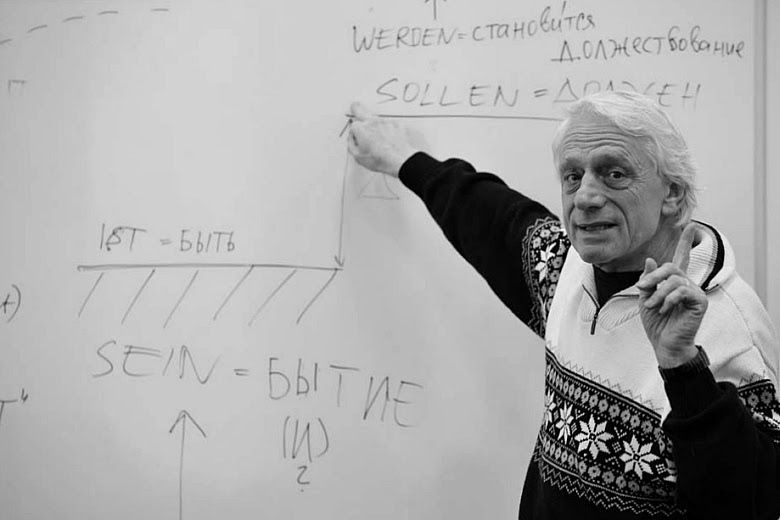
Alfrid Langle (photo: Artem Lapshin, discours.io)
How to prevent burnout and how to help yourself if this has already happened to you? This was the subject of a lecture by Alfried Langle, Doctor of Medicine and Philosophy, which he recently gave at the Higher School of Economics in St. Petersburg .
And the next study of statistics with Leader-ID prompted us to transcribe this lecture , where we saw an abrupt increase in the number of events dedicated to burnout.
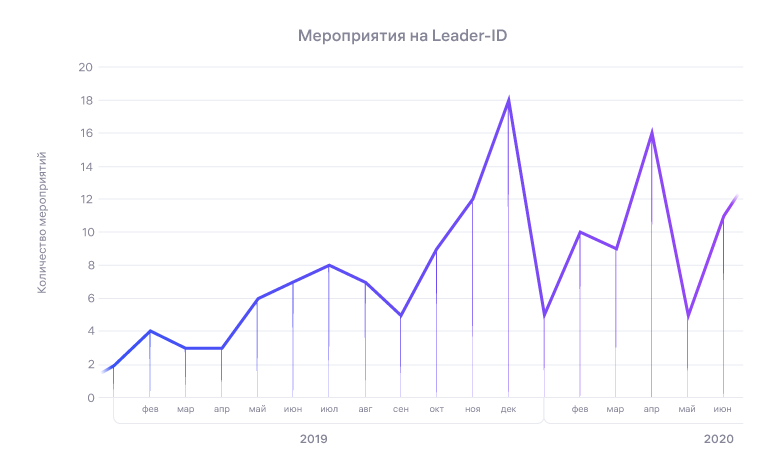
Peaks occur at the very end of the year and at the peak of the pandemic, which is quite logical. Moreover, the April peak occurred when all Boiling Points were closed for the period of isolation, and the number of events decreased significantly, since only online meetings remained.
And there is another interesting point - look at this graph:
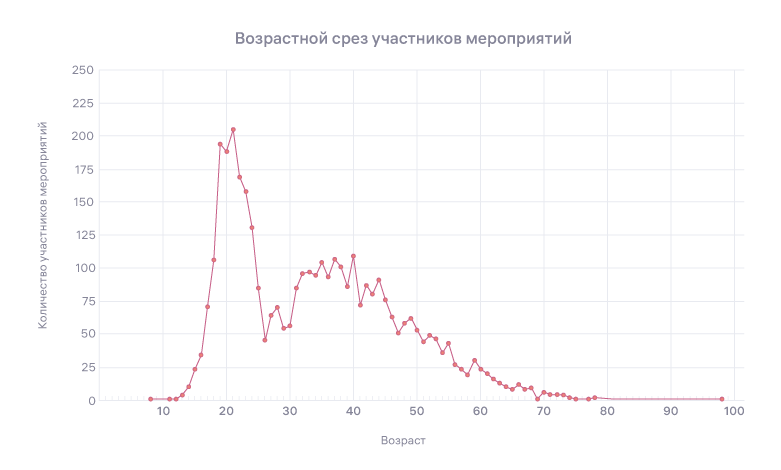
This is the distribution of participants in these events by age. It seems that this problem starts to worry people from the age of 19, with a peak at 21. Yes, about half on our site are students, but it’s a curious fact that burnout concerns them.
The table below is the distribution by profession. In the second column, the number of users registered on our platform who indicated in the profile a corresponding or similar position / specialty (we spent a lot of time processing and summarizing this data). The third column is how many people from this profession have registered for burnout events. The last column is the percentage of the total number of specialists in this area on the platform.
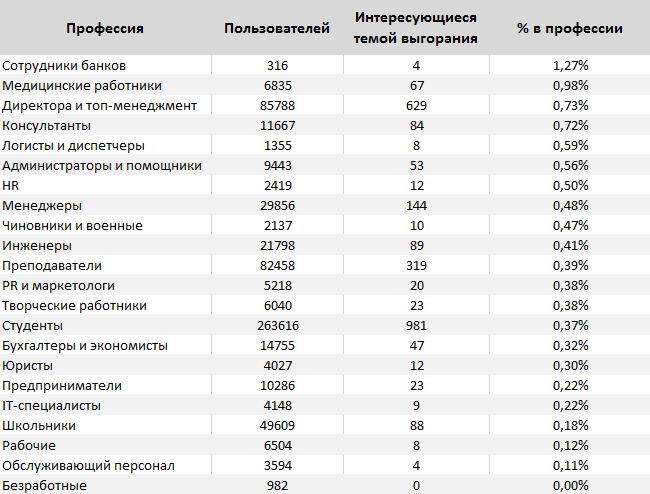
The first and last line must be treated with caution (there is not enough data), but otherwise, in my personal opinion, those professions where you have to work a lot with people are in the top.
And this is the spread by region:
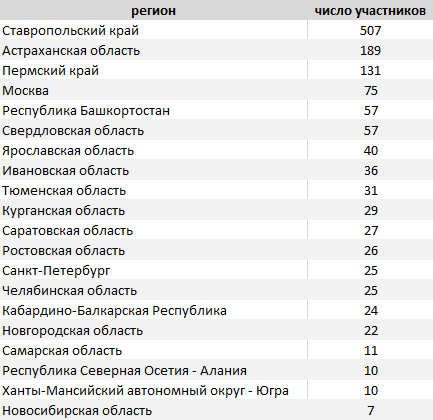
Please note that Moscow is not in the first place here. And if someone is ready to state their version of what is happening - write in the comments. And we will move on to the lecture , but first a couple of words about Alfried Langle himself.
Alfried Langle is an Austrian psychologist, psychotherapist. Doctor of Medicine and Philosophy. A student of Viktor Frankl, developing existential analysis and logotherapy.
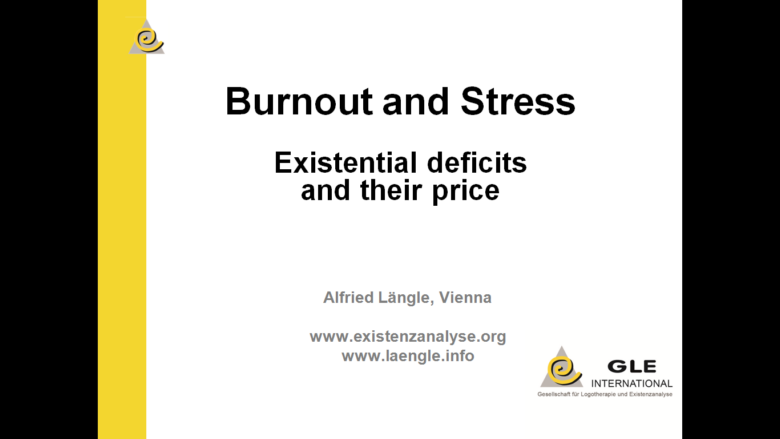
I want to talk about something that is very common in the work world - stress and burnout. I would like to show you the link between stress and burnout. All this I will present against the background of the existential understanding of man and existential deficits. You will receive quite a lot of medical, psychological information and existential guidance for life. There are some dry parts in the presentation because it is a scientific basis, but there is also an inspiring aspect that comes from an existential basis and from psychology. Usually people who listen to a presentation like this wonder what symptoms they already have, or maybe they will or have. All of this you can leave to work out for tonight. After lectures, people usually come up to me and say, "I didn't know that I already had so many symptoms." I hope too,that you will not find enough symptoms in yourself.
What are the existential reasons for burnout and stress, what is existence and how is it interrelated? What changes occur in life based on these symptoms?
First, I would like to talk about the background, because it is very important to understand the background in order to talk about burnout and how to prevent it. Because in a good life full of existence, we don't get stressed.
More precisely, we always have some healthy stress. There may even be some peaks that go beyond this healthy rate, but this usually does not lead to burnout or physical symptoms that are a consequence of stress.
Be really here
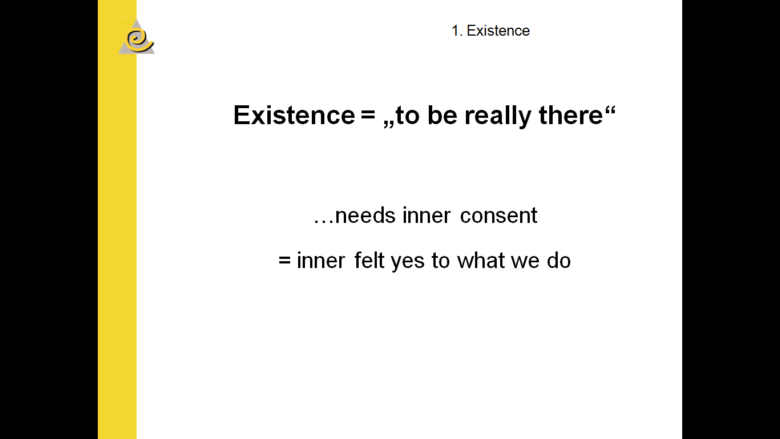
What is existence and what does it consist of? Instead of “existence,” you can say “my life,” “my being here in this world,” the way I make decisions or live a meaningful life when I live in accordance with my love, relationships, with what is important to me. Then I have the feeling that I am truly here.
To exist, or to exist, is simply to "be here." The existential minimum is when you have enough money to survive. So that someone can stay in this world and continue to live. Even in everyday language, we say that to exist, to exist, is simply "to be here."
In existential psychology, this is considered at a deeper level. I am here: of course I was born, I am here - no doubt about it. But the existentialists ask, “Okay, you happened, you were born, it happened to you, but are you really here? Are you really present in your relationship? Are you really present in your family as a daughter or a son, as a father or a mother? Am I really here when I'm alone with myself? " What does it mean to really be here? Because it is obviously not enough just to be physically present. It's more than that. What is needed is mindfulness, consciousness, openness to what is around me, and openness to what is inside me, accessibility for others and for myself.
After all, it often happens that I am somehow here, we are all here to some extent, but in order to truly exist or exist, something more is needed. We need inner consent. Maybe now you are truly here and truly present because you agreed to come here, you gave absolute consent to come.
Inner agreement is to have a feeling within yourself that says yes. To give consent means to say “yes, it’s good for me, I will do it, I agree”. Inner harmony is central to existence.
This is the key to arriving at a fully lived existence. We all know we all do this, but many people do not realize the importance of this action.
Many people cannot ask themselves over and over again, “Do I really want this? Do I really want to work that hard? Do I want to do this work or this project? "
And many will say, "Of course I have my goals." This is important for my career, it brings me a lot of money and it is very prestigious. So I want to. There is a catch in this. This is the fork between the road to stress and burnout and fulfilling life.
Because just having goals or using things is not enough. It is important that we listen to ourselves inside and pay attention to this voice within us, to the resonance that we enter, to this inner consent. Consent is a voice that says yes, so that we are open to our resonance, to what we feel, what we feel, and not just stayed to live under the dictates of emotionality, practicality, goals and need. To be truly here means to be here with all your heart, not just with your head, not only answering outside challenges. This is, of course, important, but not enough. This means the integrity of the whole being. And the perception of our feelings, our body is connected with this. If this is not really done, then stress overtakes us.
Now, after this little look at the existential understanding of man and our being, let's talk about the term "burnout", and then - about the term "stress".
Burnout and stress
Burnout is a fairly new term; it is not even fifty years old. It was first used by Herbert Freudenberger, a German who lived in New York. In his psychiatric practice, he realized that in that area of New York, where many people do volunteer work and, for example, work in churches with poor people, they feel very bad.
Despite the fact that they began to work with lofty idealistic notions and with great enthusiasm planned to translate their Christian or Jewish ideas into work with poor people, after six months or a year many of them came to him as a psychologist. They talked about the lack of energy, and sometimes even wanted to commit suicide. That is, people who were previously idealists came to him as a shadow of themselves. And when he asked what they were doing lately, in the last year, everyone said that they had a very hectic activity, they just did a lot of things.
Idealism disappeared and they were just cold ashes. It was at that time that Freudenberger read Graham Greene's The Burnout Case, and what he saw in practice reminded him very much of this book.
In his novel, Graham Greene described an architect who was very frustrated and very tired of the profession. From America he moved to Congo, where he helped people to heal. That is, he escaped from the heavy, oppressive atmosphere of North America, where he had to work only for money, and found inspiration and peace by working as a volunteer.
As you can see, the term "burnout" was born out of a practice that psychiatrists knew very well. Doctors saw different people experience similar symptoms, but considered it a form of depression. Yes, they are similar in symptoms, but not completely identical to each other. Freudenberger, on the other hand, drew attention to this and in 1973 first spoke about burnout at a conference of psychiatrists in New York. In 1974 he published his observations.
Freudenberger realized that burnout never occurs without the direct involvement of the patient.
Burnt-out people are always very active, they like to live. They want to do something, they are not paralyzed. They are in a great mood, they like their life. But somehow they come to a state in which it is very difficult for them, painful, there are thoughts of suicide, and this usually ends in depression. Burnt-out people suffer from stress, in contrast to people with depression, for whom it is uncommon. Depression is a condition in which mood deterioration occurs gradually and energy levels do not decrease because people were previously active. This is very rare in depression. This is why Freudenberger decided that burnout is different from depression, and that burnout requires a different treatment.
Freudenberger concluded that stress is the most important factor in any burnout. There is no stress-free burnout.
In short, when people suffer from stress for a long time, it leads them to a state in which they no longer have enough energy. That is, stress is really what this topic revolves around. This is what leads people to burnout. And, of course, it's not just stress like “I have to prepare for the exam” or, for example, “the child's teeth are teething, I don't get enough sleep, and then I go to work”. It's stressful too, but we can handle it. In the case of burnout, we're talking about constant stress.
The term "stress" was first coined by Canadian physiologist Hans Selye. In 1976, he published his research highlighting the differences between good stress, or eustress, and bad stress, or distress. "Eu" in Greek means "good." Diss is too much. The term "stress" itself appeared only because Selye, who was fluent in eight languages, did not know English very well. Later he said that it would be better if he used the word "strain", but "stress" had already gone into the world and it was too late to change the terminology.
Why did Selye decide to distinguish between eustress and distress? Because he realized that this bad stress, "distress", does not arise simply when there are so many different demands around. Similar symptoms appear in people when they have nothing to do, that is, when their life is boring, they have no challenges. Too many challenges and too few challenges - both are bad for our psyche and for our body. We need challenges and we need healthy stress.
Viktor Frankl said that it is very important that there is a difference between who we are and who we should become. When there is meaning in life, there is always something that we have not done yet, that we must translate into reality. Each of us has something else that we need to do: clean up the apartment, write an email, meet a friend, call mom. None of us did everything. And each of us has some thoughts “well, tomorrow or next week I have to do something”.
And when I have an inner agreement on what I should do - say, go to my mother again or finally sit down to write my dissertation - then if we look at it from the point of view of inner agreement, it’s good stress. These are healthy challenges that keep your life going. They help you navigate life and lead to fulfillment.
Usually when we just say stress, we mean distress. Distress can be defined as a non-specific response. Usually this is the body's response to some kind of challenge. Selye was a doctor and first he studied this reaction in animals, and then in humans. He observed changes in hormones and blood pressure for all of these symptoms. He talked about how the body responds to challenges and demands. It could be coronavirus, overeating, hunger, misuse of a medication, or insomnia. Whatever the challenge from the outside to which the body must respond, it all leads to some kind of physical reaction, unnatural for the body. And this reaction to different requests is always the same.
Distress
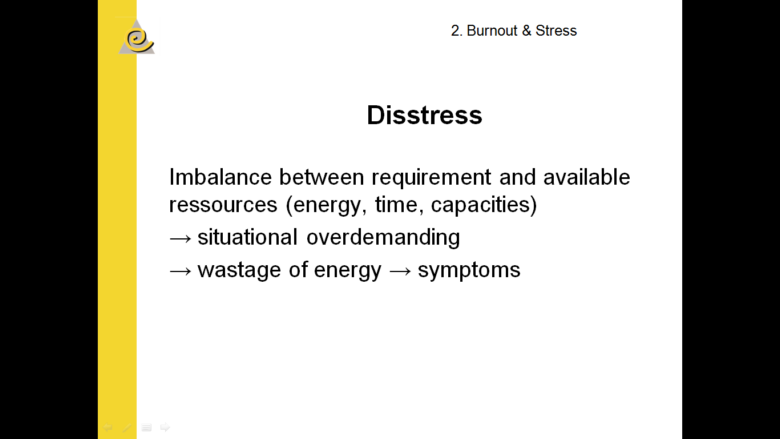
We can now define distress more broadly - which Selye later did. Distress is a lack of balance: when I have more requirements, more tasks, more work than resources. When I have more work than time and I have to get it done, then I'm stressed. For example, if I need to do a job or a presentation, but I don't have the strength, knowledge or other capabilities. Then I feel insecure and anxious. I am stressed. In this case, the same physical reactions occur as in other situations with similar mental experiences.
Distress is when they demand too much of me, when I lose energy, when they seem to lift me by the head.
This is a very unpleasant feeling associated with the pressure of circumstances.
Stress symptoms
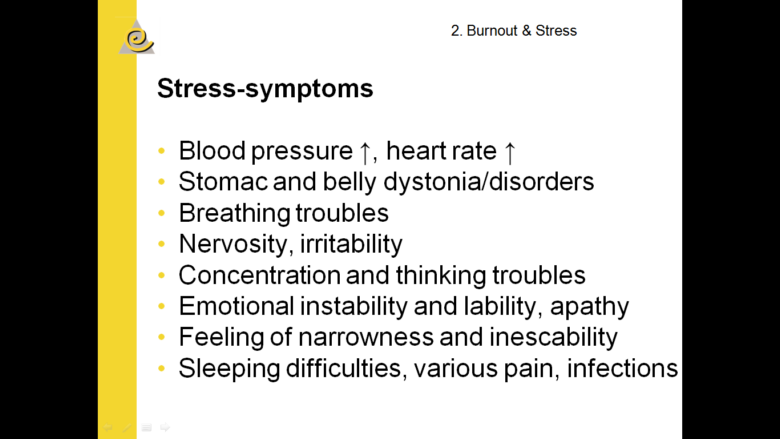
Stress has physical and mental symptoms. The first and most basic bodily reaction is when the pressure rises, unpleasant stomach symptoms appear, we feel nauseous, diarrhea, stomach pain, or weakened breathing when we breathe shallowly and quickly. We don't breathe deeply anymore because we don't have time for that. We feel this constriction. We are irritable and nervous. We give quick answers, we don't have the energy and the ability to listen to someone for a long time. For example, on an exam, when we are very stressed, because we think that we have not learned everything to the end, we cannot concentrate, thoughts leave, and we just see a blank sheet in front of our eyes.
When we have very strong stress, we feel apathy, no longer feel motivated. There is a physical sensation of constriction, hopelessness, and we cannot get out of it. This is often due to insomnia and other bodily problems such as infections, muscle pain that travels through the body, neck and back.
Burnout catches us in this stress. I can't see how I can get out of here. I have exams in three weeks, and I'm not ready yet, and I have nowhere to escape from this. Or I have two small children, I am a single mother in a small apartment, and I have nowhere to run. This all leads to stress. When hopelessness is added to this, people are trapped. When we have such conditions and we have nowhere to run, there are no tools that can help us, this further increases stress.
Physiology of stress
Stress, of course, has a physiological basis. We have fast and slow response "services". At the neuronal level, we can react quickly. This is the access of adrenaline, or norepinephrine. This rapid stress produces receptor stimulation. This part of the nervous system - the sympathetic - is designed to resist, to fight. There is also a parasympathetic system, a system of recovery, getting strength back. The sympathetic system makes us ready for battle. It mobilizes all strength, all energy, raises blood sugar, pressure. This is a quick reaction that disappears just as quickly. For example, when we are driving and sudden stress comes, adrenaline gets into the bloodstream and we can react very quickly. And after 20 minutes the adrenaline in the blood disappears.
But there is also more dangerous stress, cortisol stress. Cortisol is a great weapon. It helps us cope with different situations, physical or psychological. It also mobilizes energy in the body by drawing it from within. It destroys muscles because it brings sugar from there into the blood. He takes all the energy that we have in the body. Of course, this is normal in an emergency. It helps a lot in medicine. For example, people with asthma can be given cortisol during an attack and this helps them survive. But when this stress continues for a long time - a week, a month, or even a year or two - our system is constantly mobilized. Because of this, the body suffers, immunity decreases, because energy is drawn from protein, and the immune system is pure protein. Again, a long reaction is normal if it's for a day or a week, but if it lasts longer, it's dangerous.
Exhaustion
That is why if we are constantly under stress, exhaustion begins. Cortisol has already done its job and now it is harder and harder to get energy. Exhaustion occurs when we can no longer recover or we don’t have enough time to sleep, exercise, and rest because we do not allow ourselves to do so. We think we don’t have time for this.
Often, stress can also manifest itself in the fact that a person can no longer fall asleep. People lie in bed but only sleep 2-3 hours. Then they can use drugs and alcohol. After a long period of stress, physical responses no longer work as well as they used to. Then symptoms arise in all three dimensions of human existence. We experience weakness, various other disorders arise, for example, sleep disorders, breathing disorders.
Also, in parallel, at the level of the psyche, we can no longer experience joy. We no longer experience joy when we eat our favorite food or just take a walk. We become insensitive and irritable. On a personal level, we avoid relationships, we no longer meet with friends, we just don't have the energy for it. We take ourselves out of the world. And if before we liked, for example, playing or listening to music, just chatting with friends, now we are too exhausted for that. We stay at home and cannot rest. This is such a hellish spiral that more and more people are sucked into burnout.
Now let's look specifically at the symptoms.
Burnout symptoms
They were described by Maslach and Jackson. At zero, there is idealism and overstrain. They are replaced by emotional and physical exhaustion, dehumanization. It all ends with just a reluctance to do anything. People do not want to do anything either towards themselves or at work. If this continues for a long time, it leads to a breakdown. People just quit their jobs, become depressed, and contemplate suicide. And they also have many diseases at the bodily level.
The first step in burnout is emotional exhaustion. People are constantly tired. They get disgusted when they think about work. Often they have a sleep disorder, various diseases appear. They suffer from ARVI much more often than before.
On the next levelthey lose themselves, their personal life. People who were so idealistic, so eager to help others, become cynical. Doctors who so wanted to help patients are cynical about them and no longer want to work with them. At the same time, they understand what they are doing and feel guilty, because the brain is working - but there is no energy. They develop avoidant behavior and try to work less. They have the feeling that they just function like machines. The inner life stops, and the outer one goes on as before. They are somehow no longer themselves. They are more and more alien to themselves.
In the third stagethey are already doing a poor job. They are unhappy that they have so few results and no success. They feel helpless. They no longer recognize themselves, they feel imperfect, insufficient. This is already very close to depression and can lead to it.
Freudenberger described 12 stages of burnout, which is a detailed version of the three stages I described above. Everything does not always happen clearly in these stages. Sometimes they mix a little.
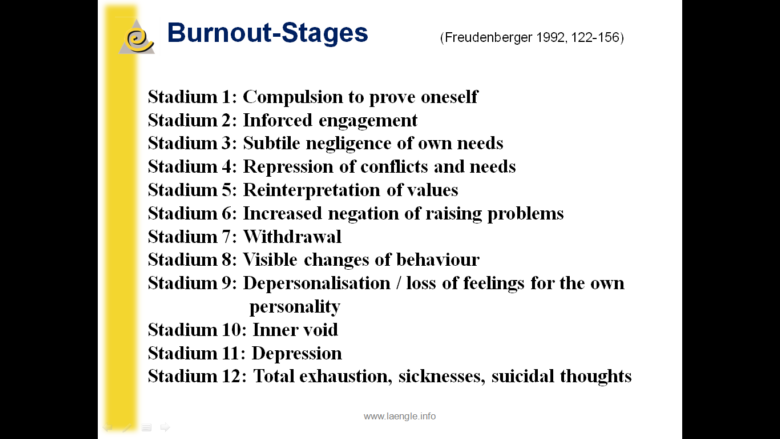
At the first level, he describes a common behavior: a person is constantly trying to please someone, to say that he is good or does something well. This can very often lead to burnout, because in this case people will do more than they should or can. This is logical, because if I constantly have to show everyone how good I am, at some point I will reach the limit and will not be able to do it.
And then I begin to deny my own needs. At first I ignore them. At the next stage, I suppress them altogether. Then conflicts arise. And I think that these conflicts are irrelevant as they arise from the fact that I am very busy. And then such people begin to reinterpret their values. They say that friendship is not important in life at all. And what was previously valuable is now changing its position in their hierarchy of values.
When people live like this, problems arise because other people react to it. They are becoming more and more blind to these problems. Then they walk away from people who tell them they have problems. Then their behavior changes. They become denying, negative, cynical. They lose their inner life. This is the kind of depersonalization that we have already talked about a little. When people live like this, an inner emptiness arises. They have no joy, no pleasure, no relation to themselves. Maybe first depression, and then illness, or all together and thoughts of suicide.
I have had many burnout patients, but I remember one with a very strong degree. This surprised me, because he worked as a director of a large company right up to the moment of his appeal. And nobody saw his mental state. He had so many routines that he often thought about committing suicide. He no longer drove a car, because he was afraid that when he went through the tunnel, he would simply go into the oncoming lane and crash into a truck. The thought haunted him.
Existential burnout background
I also had another patient. His wife called me to make an appointment. I asked how urgent it was. She said it was urgent enough. It was Friday night. I said I'd write it down for Monday morning. He came to my office, sat down and said: "I'm finally here." I asked why. "All weekend I sat and held on to my chair to make sure I didn't jump out of the window."
This is already the last stage of burnout, which is very critical, very important and very difficult. This path begins with the fact that I demand too much of myself.
We can help these people.
Let's now look at the existential background. Why do people behave this way? How can we understand this?
Existential rules
Burnout is not something that happens overnight. It is connected with the fact that there is no meaning in life for a very long time. For example, when I work and do not see the point in it, and I only care about the utility or the results. Then it can lead to burnout.
What is the existential meaning? I am now comparing these two poles: existential meaning and false meaning. Existential meaning is when I see something of value that affects me, and I am willing to give a piece of myself to do it.
We all know this when we see someone sitting alone and crying. A friend, for example. It touches us, we feel that it is not good. Maybe I can help, I would like to help. Then I go to this person, my friend.
Every day is full of moments like when we make breakfast for the family or when we go to work. When we live and work this way, then we experience fulfillment and happiness because we feel the values that speak to us. We focus on what we need or what the situation suggests. Sunset. I watch the sunset and it feels good. But this is not a real existential meaning, it is a false meaning. It leads to emptiness.
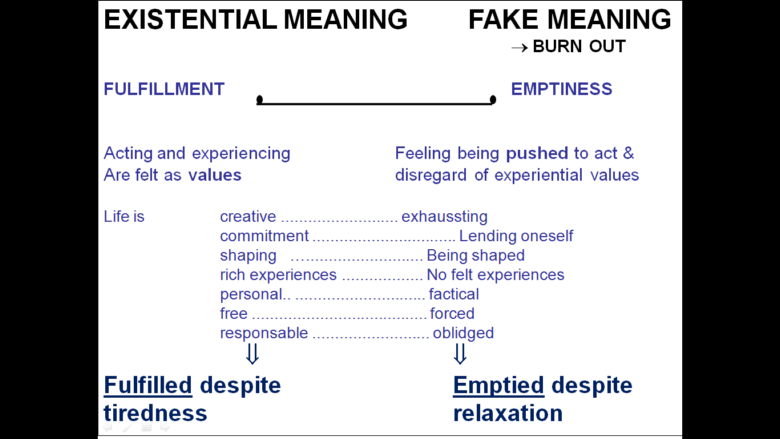
With a false sense, there is a feeling that something is pushing me from the outside to what I need to do. At the same time, what is really important fades into the background.
( ) . , , . , , . , . . . , , . . , . .
On the existential side, we have a fulfilling inner life. Of course, in the evening we can be tired, of course, we need a vacation, but it is there. Once on the other side, we also imagine that it makes sense, but this does not really come from our interaction with the situation, but a projection from us. Then we feel empty. Even when we rest, we still feel emptiness afterwards. Because I give myself, and that doesn't fill.
The first existential rule
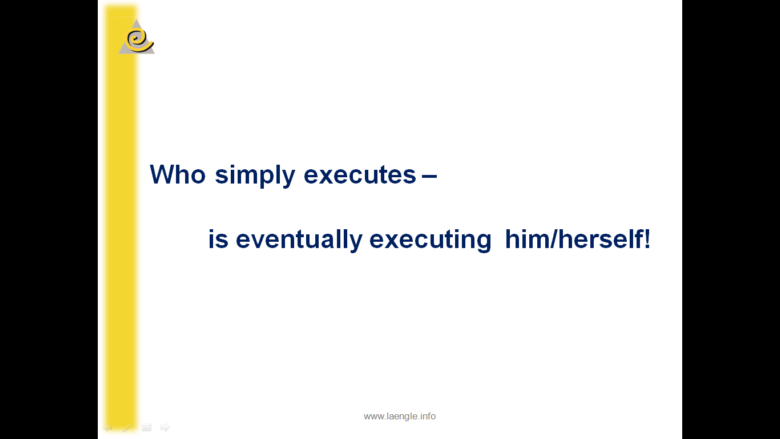
Here we can come to the conclusion that someone who is only a performer of some duties or functions will sooner or later finish off himself. When I'm just doing some work, I want it to finish as soon as possible. I don't want it to be associated with me. I wash the dishes to do this, not to enjoy the process. For washing dishes or cleaning, it's still okay, because it's 10-20 minutes, but when very long periods in my life happen with this attitude, I start to push myself away. I want to get rid of some business, but sooner or later I get rid of myself.
Second existential rule
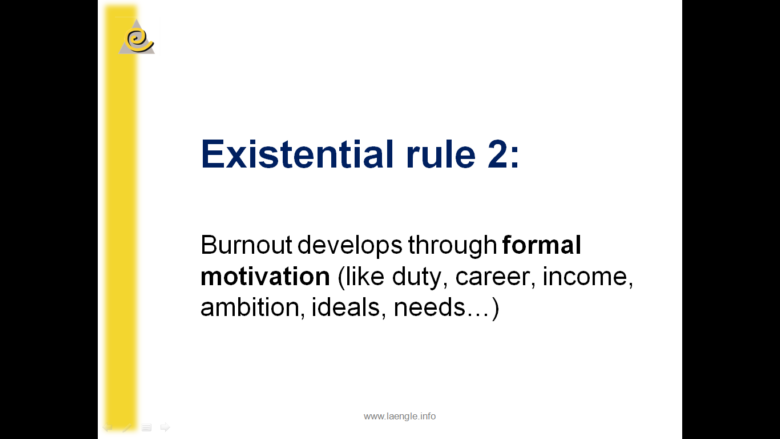
We can describe the motivation of people who experience burnout as formal motivation, rather than motivation that focuses on the core, values. Formal motivation is, for example, duty. I have to be here because the teacher has to be there, even when the students have a break. In the evening I have to read all these books, whether they are interesting or not - it doesn't matter. No motivation to maintain. Just formal motivation.
A good mother should always be with her children. Do you like it? It doesn't matter, I have to be there. This is a formal motivation, there is no life in it.
There are a lot of such motives: career, hunting, ambitions, ideals, needs, even Christian ideals: I must help poor people, otherwise I am not a Christian, as it is written in the Bible. But do you want this?
Formal motivation comes to us from outside, sometimes from religion, from our own expectations. We can confront this, come face to face and ask: "Do I want this?" Maybe I do not want this and am trying to meet other people's requirements or ideas about me. And if I fail, then I feel guilty. I'm not really referring to what I do. I don't get involved in this and I don't feel the value of my work. This is such a false inclusion. Of course, this should lead to emptiness, because I don't get anything in return.
Third existential rule
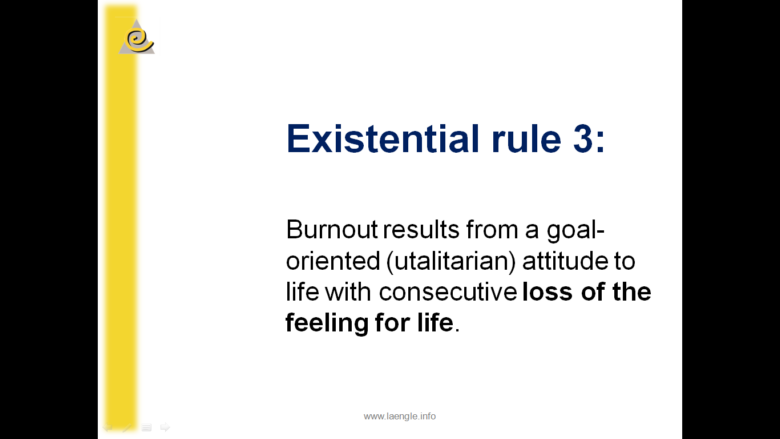
If we are not focused on meaning, but do things only because they are useful, we do not feel value, we do not focus on them. We don't live fulfilling lives. We are not attracted to what we do. But what pushes us forward is that it has to be done, it's good for my career or for my husband to stay at home with me. In all areas of our life, we can live under the star of this apparent utility. This can be effective. Sometimes we will succeed — but we lose touch with life.
Fourth existential rule
Burnout and stress occurs when we do something without an inner sense of the value of what we are doing. Then we live our life without ourselves. This can be formulated more simply: when we live with inner consent, burnout will not happen. Inner consent is the best cure for burnout.
Fifth existential rule
Lack of connections / relationships is behind burnout. People lose touch with themselves. They don't feel themselves. Emotions are insignificant for them. They don't give them a way out, they are not important to them.
When I don't care about myself and my inner life, I don't care about you either. Then, of course, emptiness and irritability comes.
When we have a connection with what is happening, we have a good prevention of burnout in relationships not only with other people, but, above all, with ourselves. When I have a good relationship with myself, I am open with my feelings to another. In a relationship, internal and external are connected.
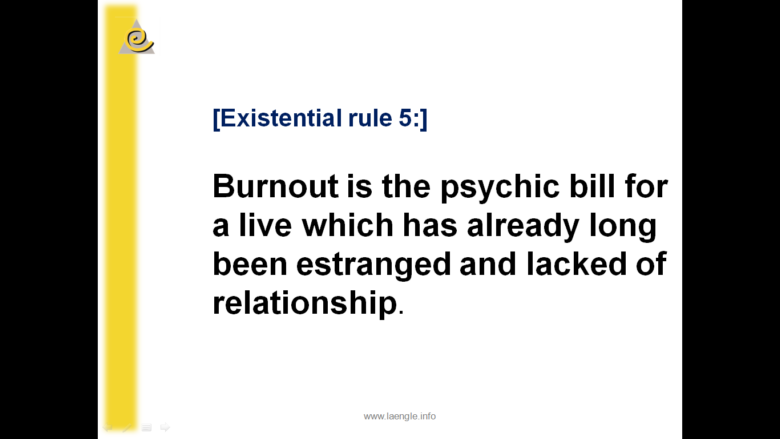
We could say that burnout is the bill we have to pay when we live without a good relationship for a long time.
Other consequences of burnout
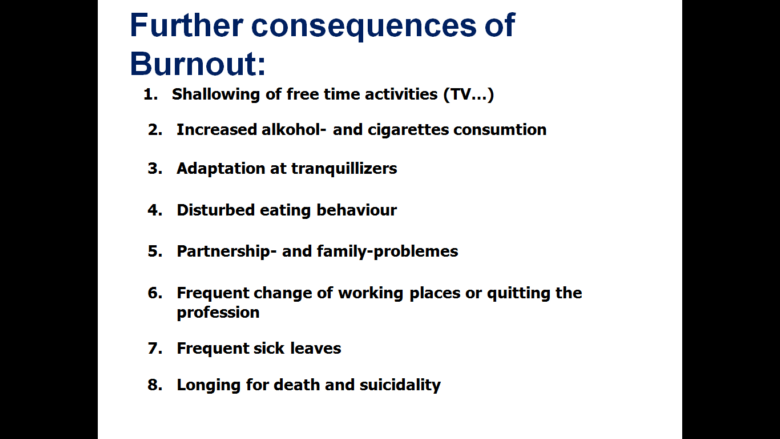
Let us now consider other consequences of burnout. People have a shrinking life, they no longer do in their free time what fills them with joy. They continue their formal life. They watch TV and change channels every 15 minutes because they get nervous when a movie is on for too long. There is a great risk of becoming addicted to alcohol, smoking and tranquilizers. They eat too much or too little, too many chips, or junk food while they work.
They constantly have problems with other people because they are not truly present for other people: for children, for a partner, for friends. They become rioters, which is very significant. But they even deny this rebellion. They interpret it in a different way. They don't see any connection here with their own lives.
This instability can also shift to the workplace. They change jobs all the time. They think their bad feelings are related to a particular job, and they hope that when they change jobs, those feelings will disappear.
Then they become more and more painful. They have no escape route and dream of death.
Basic rule
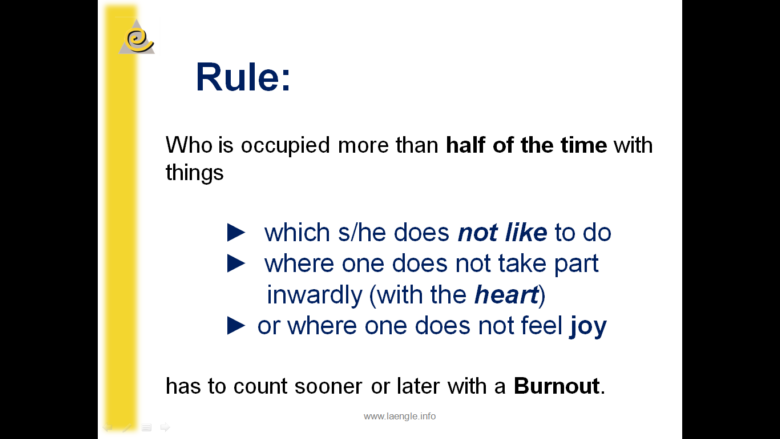
We can deduce a rule. When someone spends more than half of the time on things that he does not like, in which he does not participate in his heart, emotionally, does not feel joy from what he is doing, sooner or later he will come to burnout.
Therefore, you need to live integrally. Not only at the level of rationality, utility, responding to some external needs and requirements in relation to oneself, but it is important to be connected with your inner life and make yourself present in your inner life.
Burnout prevention
Let's get down to practical things. First of all, ask yourself: why am I doing this? Is this exactly my goal? Why is this goal so important? Do I feel that this is important to me and it gives my life a meaning? Let's ask ourselves if I like doing this. It's good? Do I feel it? Do I get something back when I get involved in it? Otherwise I end up in imbalance. I can cook with a sense of duty, or I can cook with a sense of pleasure. If I don't feel valued in this, I should change the situation. There are often situations that are difficult to get out of. But much more often there are situations from which we can get out, but do not understand it.
There was a case in my life - children sometimes told me: “we don't like the way you cook”. When this began to happen all the time, my wife and I began to change the situation. "Okay, then cook yourself what you want." It was a good decision. Now they really love to cook. They got freedom and responsibility because they didn't want to be simply used.
If I no longer feel the pleasure or value of the cooking process, my kids will complain all the time. Do I want to live for this? That's a very difficult question.
Do I really want to live to make money? Of course, we need a certain number of them. But do we want to spend our lives to earn even more? Do I really want to live so that others think that I am the best?
This makes my values relative when I include them on the horizon of my whole life. For what? Do I like it? Do I want to live for this? Because any time I invest is the time of my life. I act as if I want to live for what I do.

The importance of planning
To prevent burnout, I need to think well and plan everything I do. Ask yourself, are these plans realistic? I'm not young anymore, but I also make such mistakes. When I write an article, I think it will take me a week. But I know myself. I am planning this week, but leaving gaps in the schedule that could be filled in the process. When planning, it is important to consider entertainment, recreation, sports, sleep, vacation. Psychologists and consultants specifically help people to improve their rest, recommend resorting to autogenous training, yoga or meditation in the morning.
Dealing with problems is also important to prevent burnout. When we encounter them, it may be like a mycelium: new mushrooms of new problems are constantly growing in different places. We have constant stress, constant pressure. The problem is here because it requires our attention. We have to do something with her. Check your setup in relation to work. Why am I doing this? What is the reason? What is the value? Ask for outside help. There are people who think they have to do everything on their own. This will, of course, lead to burnout.
Recovery / treatment

Recovery can be divided into three stages, which are discussed below. In general, there is a great deal of literature on how to treat burnout. Counselors and psychotherapists work hard to bring people back to life, but sometimes it can be very difficult. Take, for example, a patient who is in a high position, he had a lot of work, and now he went through four months of recovery. When such people then return to work, there is a very high risk that their attitude towards it will be the same.
I had one patient with whom I worked on burnout for about two months. We started already when he left work due to illness. Initially, he could not even imagine that he had to leave the office at six o'clock, and on Wednesday he only had to work half a day, and half of the day he had free.
, . , , .
Soon, while working with him, we found out that as a child, his mother raised five children alone, and he was the oldest. She had a small restaurant. This means that there was a lot of work. He felt that if he did not help her, the family would collapse. It will burn out. Thus, he helped because he wanted to help the family survive. He was very afraid that his mother would come to him and say: "You are a lazy boy." When he was 60, he did everything so that no one came up to him and said: "You are lazy." These attitudes lead us to do too much to meet requirements.
These people also have problems with delegation. It is very important to draw boundaries: I can do this, but I cannot, and I need help. If you are a boss, it is important to remember about colleagues who can help. Or I tell my boss that this is too much for me. And I feel self-worth even when I do less. I have a limit, a border. What are my limits? What are my own possibilities? What should I choose? How can I look myself in the eye and look others with respect?
Add a piece of yourself
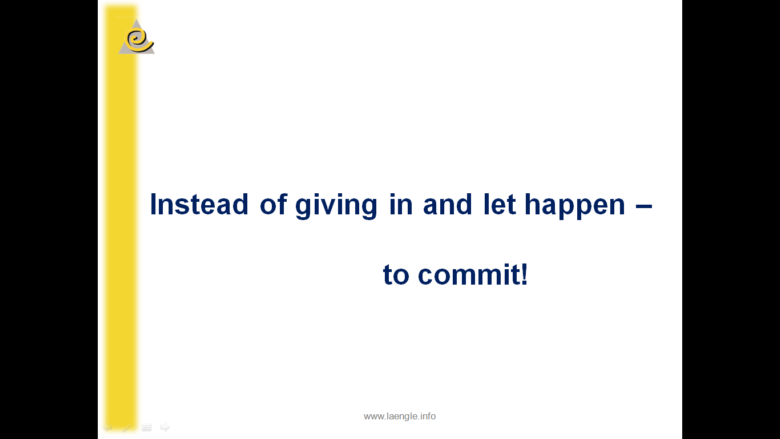
Instead of allowing something to happen, you need to bring yourself into your needs, your dreams, your goals. In English it sounds like "commit". It is a Latin word that means "I will send something along with what I do." What do I send when I do something? I send myself. But I can send myself only if I have inner consent. Inner harmony makes my life personal. With an inner consensus, you have a guarantee that you won't burn out.
Why? Because with inner agreement, I have empathy for myself in the situation. It's not just rational. It means that I feel it in my heart. And I can feel that this is too much now. I feel like I would like to rest. I feel like I don't have to do anything. We feel it. We have this opportunity. We can live in our industrial postmodern culture without burning out. But only if we pay attention to being human, to be ourselves and to be attentive to ourselves.

PS If you want to go a little deeper into the topic, we recommend this research article by Alfried Langle: " Emotional Burnout from the Position of Existential Analysis " (pdf).
I would also like to thank Ekaterina Sushko from the Higher School of Economics and Existential Analyst Dmitry Layus for her help in preparing this material.